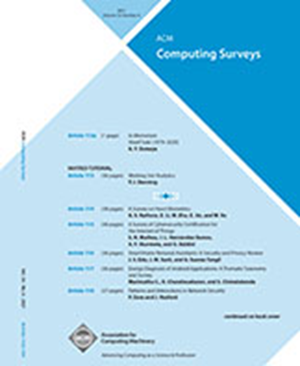专家团队组成的子图优化研究综述
IF 23.8
1区 计算机科学
Q1 COMPUTER SCIENCE, THEORY & METHODS
引用次数: 0
摘要
专家团队组建是指寻找一组专家,他们有望共同努力完成一个给定的项目,这个问题历来以各种方式解决,包括以耗时且充满偏见的方式手动解决,以及在社会科学和管理等学科中通过算法解决。在目前的努力中,我们提供了一个区分基于搜索和基于学习的方法的分类法,我们从基于搜索的类别中调查了基于图的研究,因为它们构成了主流。我们对这一领域的各种定义进行了统一和审查的概述,仔细审查了假设,并确定了不足之处。我们首先回顾专家团队形成问题的初始方法,以奠定概念基础,并提出必要的概念,以便对该领域有一个更有根据的看法。接下来,我们提供了基于优化目标函数的基于图的专家团队形成方法的详细视图。我们列出了谁建立在谁的基础上,以及算法是如何进化来解决以前作品的缺点的。此外,我们对评估模式进行分类,并详细说明可以从中得出的度量标准和见解。参考评估方案和指标,我们比较了作品并提出了未来的发展方向。本文章由计算机程序翻译,如有差异,请以英文原文为准。
A Survey of Subgraph Optimization for Expert Team Formation
Expert Team Formation is the search for gathering a team of experts who are expected to collaboratively work towards accomplishing a given project, a problem that has historically been solved in a variety of ways, including manually in a time-consuming and bias-filled manner, and algorithmically within disciplines like social sciences and management. In the present effort, while providing a taxonomy to distinguish between search-based versus learning-based approaches, we survey graph-based studies from the search-based category, motivated as they comprise the mainstream. We present a unifying and vetted overview of the various definitions in this realm, scrutinize assumptions, and identify shortfalls. We start by reviewing initial approaches to the Expert Team Formation problem to lay the conceptual foundations and set forth the necessary notions for a more grounded view of this realm. Next, we provide a detailed view of graph-based Expert Team Formation approaches based on the objective functions they optimize. We lay out who builds on whom and how algorithms have evolved to solve the drawbacks of previous works. Further, we categorize evaluation schemas and elaborate on metrics and insights that can be drawn from each. Referring to the evaluation schemas and metrics, we compare works and propose future directions.
求助全文
通过发布文献求助,成功后即可免费获取论文全文。
去求助
来源期刊

ACM Computing Surveys
工程技术-计算机:理论方法
CiteScore
33.20
自引率
0.60%
发文量
372
审稿时长
12 months
期刊介绍:
ACM Computing Surveys is an academic journal that focuses on publishing surveys and tutorials on various areas of computing research and practice. The journal aims to provide comprehensive and easily understandable articles that guide readers through the literature and help them understand topics outside their specialties. In terms of impact, CSUR has a high reputation with a 2022 Impact Factor of 16.6. It is ranked 3rd out of 111 journals in the field of Computer Science Theory & Methods.
ACM Computing Surveys is indexed and abstracted in various services, including AI2 Semantic Scholar, Baidu, Clarivate/ISI: JCR, CNKI, DeepDyve, DTU, EBSCO: EDS/HOST, and IET Inspec, among others.
 求助内容:
求助内容: 应助结果提醒方式:
应助结果提醒方式:


